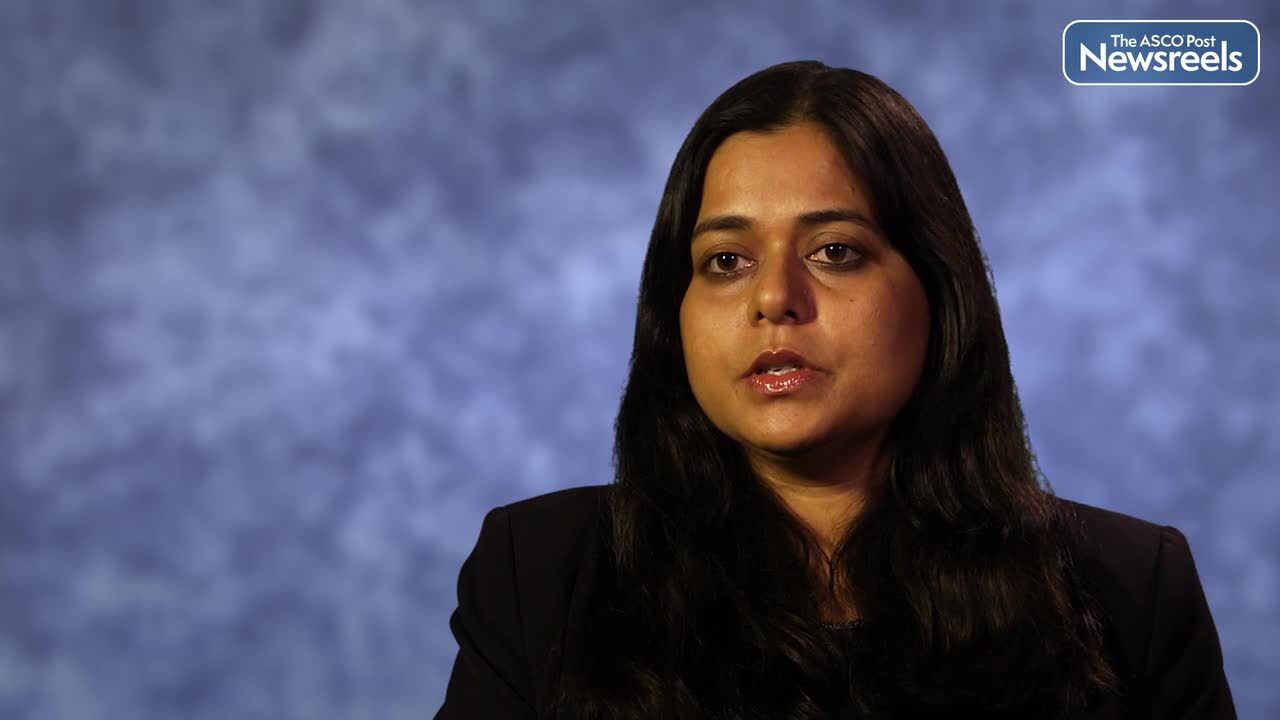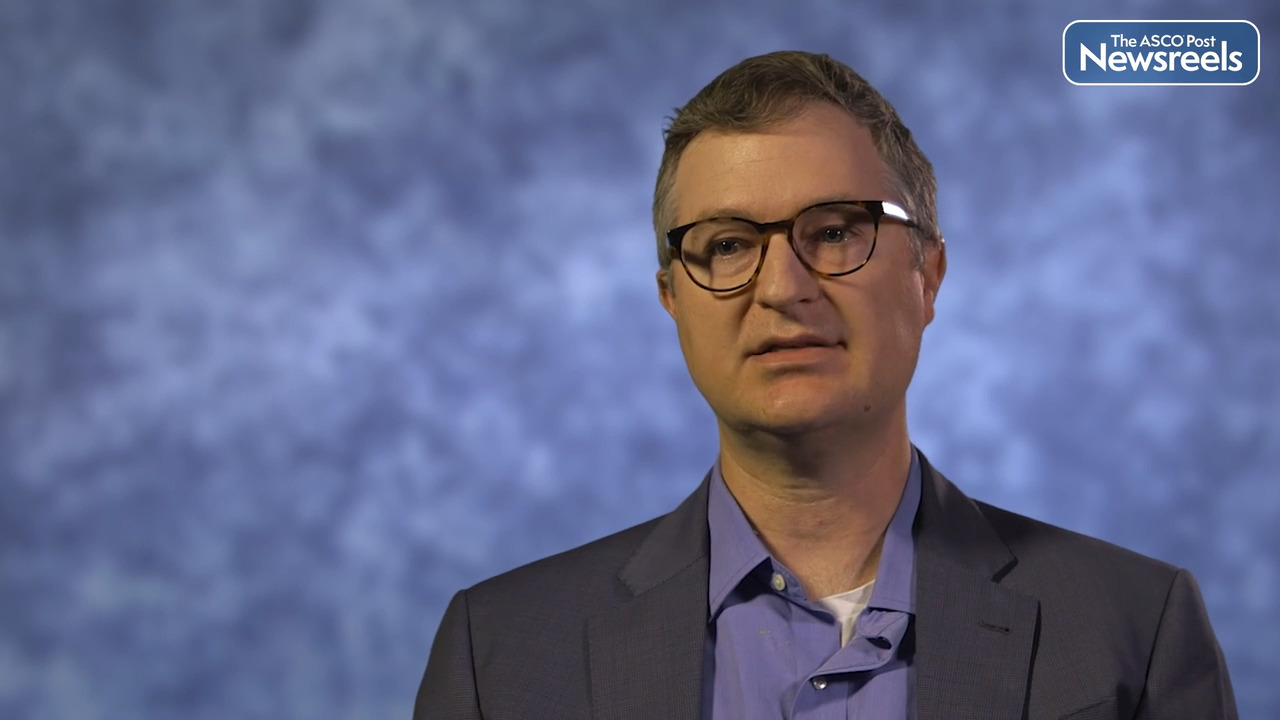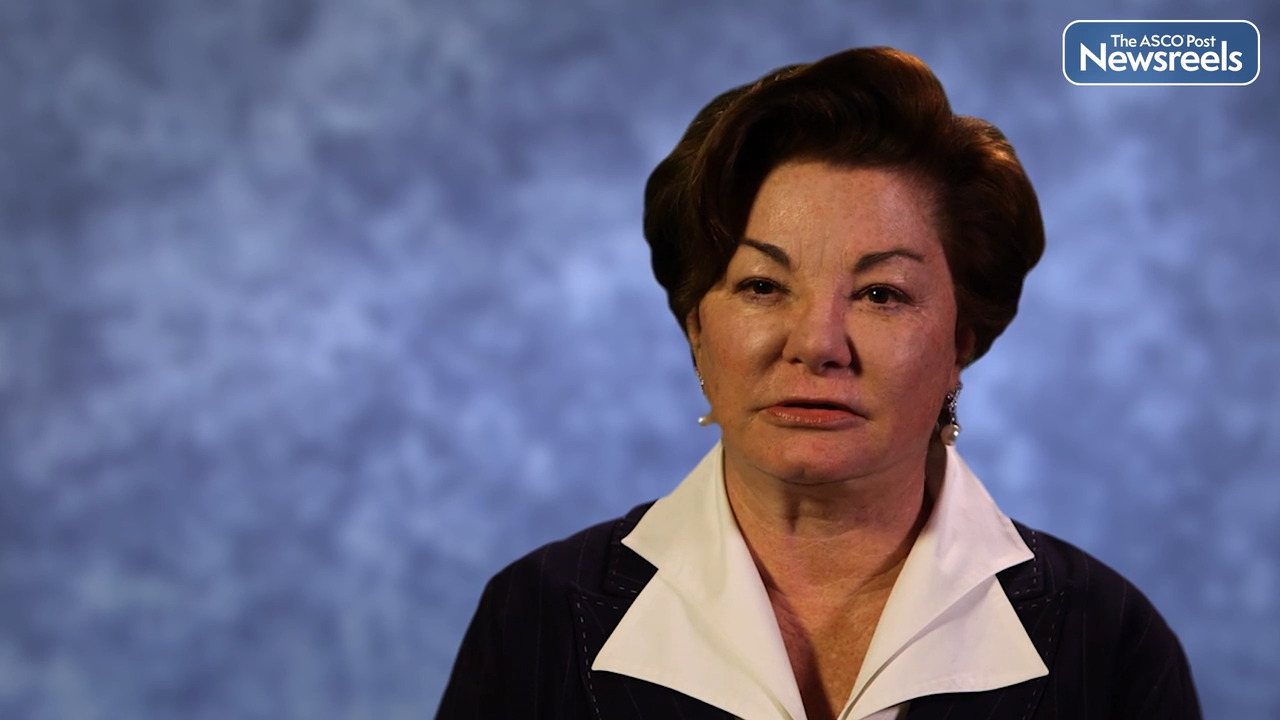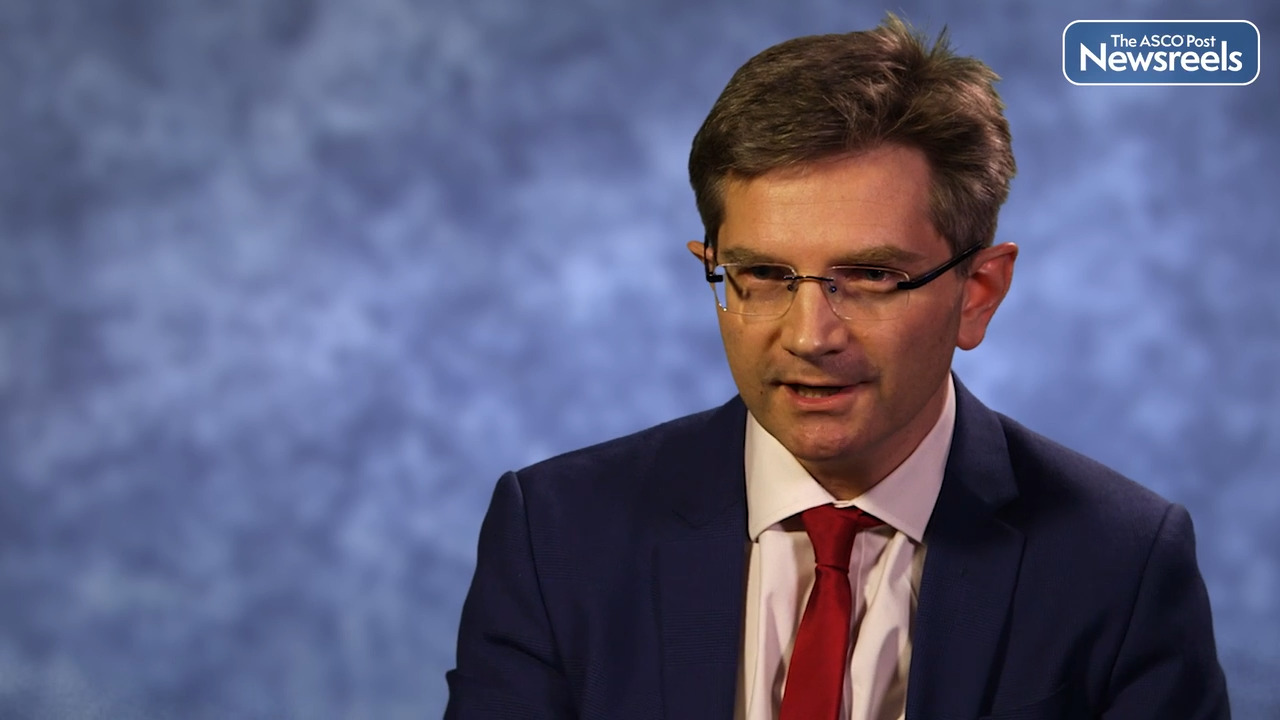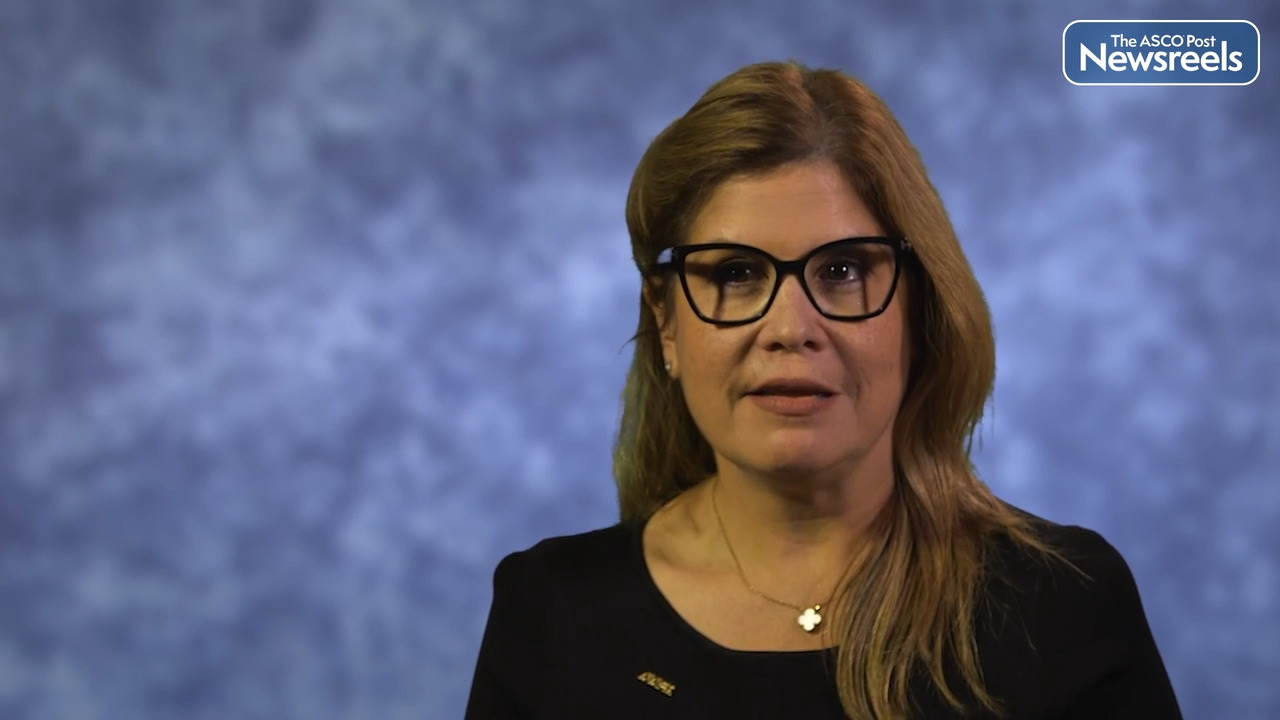Nickolas Papadopoulos, PhD, on Multicancer Early Detection: Opportunities and Challenges
AACR Annual Meeting 2022
Nickolas Papadopoulos, PhD, of the Sidney Kimmel Comprehensive Cancer Center, discusses early detection as the key to reducing cancer mortality and the lack of tests for many malignancies. Liquid biopsies have the potential to screen for various tumor types, albeit with varying levels of sensitivity. Dr. Papadopoulos discusses his research on such blood tests, following patients prospectively to find the best combination of genetic and epigenetic biomarkers to increase sensitivity (Abstract PL02).
The ASCO Post Staff
Meenakshi Anurag, PhD, of Baylor College of Medicine, discusses results from the ALTERNATE trial, which showed the combination of anastrozole plus fulvestrant was superior to either drug alone in inhibiting tumor proliferation in postmenopausal women with early-stage luminal B breast cancer (Abstract CT026).
The ASCO Post Staff
David A. Barbie, MD, of Dana-Farber Cancer Institute, discusses his laboratory’s studies, showing that malignant pleural mesothelioma, an inflamed cancer type with marginal response to immune checkpoint blockade, demonstrated high tumor cell STING expression and response to STING agonists in combination with natural killer cell therapies ex vivo. STING is the tumor cell stimulator of interferon genes (Abstract 4168).
The ASCO Post Staff
Cheryl L. Willman, MD, of the Mayo Clinic Comprehensive Cancer Center, discusses the profound cancer health disparities among Native Americans, exacerbated by low rates of screening and limited access to care. Dr. Willman is heading an effort to promote community engagement in comprehensive genomic sequencing with the hope that researchers will discover novel mutations and genome-wide mutational signatures that can ultimately be translated to improved screening and therapy in this population (Abstract PL03).
The ASCO Post Staff
Benoit You, MD, PhD, of the Lyon University Hospital (France), discusses phase I/II safety and efficacy results from the ENDOLA trial that combined olaparib with metronomic cyclophosphamide and metformin in patients with advanced pretreated endometrial cancer. At 10 weeks, the non–disease progression rate was 61.5%, reaching the primary endpoint of the study. Median progression-free survival was 5.1 months. Research on biomarkers of efficacy is ongoing (Abstract CT005).
The ASCO Post Staff
Marcia R. Cruz-Correa, MD, PhD, of the University of Puerto Rico Comprehensive Cancer Center, discusses a way to possibly transform cancer outcomes by teaming up basic scientists, clinical researchers, and community advocates to work together, decode the complexity of cancer, and find points at which to intervene in the development of tumor cells. One strong focus is on communities disproportionately affected based on their genomic ancestry, geographic location, and ethnicity (Abstract PL06).
